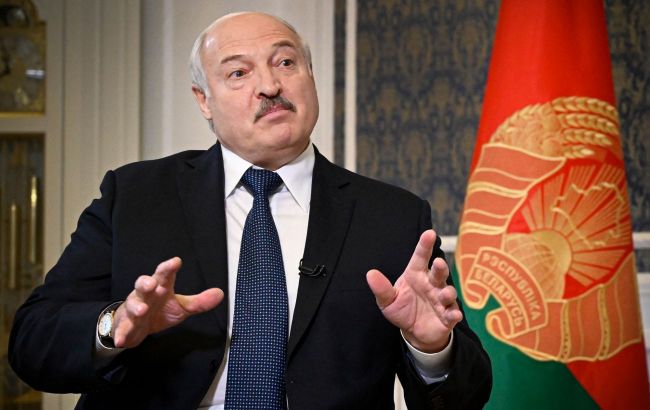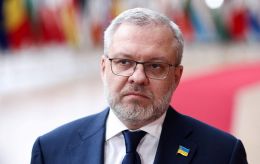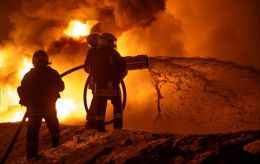Lukashenko signs lifelong immunity and security guarantees for himself and family
 Alexander Lukashenko, Belarusian dictator (Photo: Getty Images)
Alexander Lukashenko, Belarusian dictator (Photo: Getty Images)
The self-proclaimed president of Belarus, Alexander Lukashenko, has signed amendments to the law on the president. Among them are guarantees of immunity, lifelong security protection, and the right to state-owned property after resignation, according to Belarusian Radio Liberty.
The amendments entail aligning the law with the updated Constitution and, among other things, establishing guarantees for the president and their family, even after the termination of their powers.
The guarantees for an incumbent president include state maintenance and service. Their list is approved in the updated edition, encompassing official residences, temporary accommodation, and leisure facilities.
The list also includes material-technical, social, domestic, and other services, along with state and special communications.
In the new edition, all president's guarantees, except salary, also apply to their family members during the president's tenure.
The law is supplemented with a section outlining guarantees for a president whose powers have ceased and their family members (parents, husband/wife, children, including adults).
A former president whose powers have ceased:
- becomes a delegate to the All-Belarusian People's Assembly and, with consent, a lifelong member of the Council of the Republic (except for a president whose powers ceased due to health reasons);
- can participate in the management of non-commercial organizations founded by them to support Belarusian statehood and engage in activities in social, cultural, educational, sports, and other socially beneficial spheres;
- has lifelong state protection;
- is immune and cannot be held criminally liable for actions taken in the exercise of presidential duties, cannot be detained or tried for such actions;
- additionally, family members have immunity;
- will have access to state-owned residential and office premises, transportation, communication means, and other property, documents for the ex-president and their family;
- retains the right to former presidential medical and transport services (as defined by legislation);
- the ex-president's life and health must be insured at the expense of the national budget;
- is entitled to lifelong monthly financial support equal to the incumbent president's salary, as established by law;
- will receive state-owned property for residence, including "land plots with capital buildings, separate premises, and other real estate" and "movable property associated with the improvement and operation of real estate" exempt from income tax;
- may have assistants, use state and special communication services for free; can use halls for officials and delegations at airports and train stations for free;
- each family member of the former president, after their death, will receive financial aid as provided for the president whose powers ceased;
- criminal cases related to crimes against a former president whose powers ceased and their family will be heard by the Supreme Court.
The draft also includes a new provision that states that the burial and commemoration of a president, as well as a president whose powers have ceased, will be funded from the republican budget.
Additionally, the current amendments establish that only a citizen aged over 40, who has lived in the republic for at least 20 years before the elections and does not hold a foreign residence permit, can become the President of Belarus.
Lukashenko's regime in Belarus
In August 2020, mass protests erupted in Belarus. People took to the streets across the country following the announcement of preliminary election results, according to which Alexander Lukashenko supposedly received 80% of the votes and retained the presidency of Belarus.
Even before the vote, fearing a defeat in the elections, the Belarusian regime began persecuting all possible opponents. When the Central Election Commission of Belarus announced the preliminary election results, thousands of Belarusians took to the streets to show their disagreement with the clearly falsified results.
Almost immediately, Belarusian security forces used unjustified violence against those who protested the election results. Special purpose police unit OMON shot people with rubber bullets, threw smoke and stun grenades into crowds, beat them with batons, and then detained them. Protesters from Minsk were sent to detention centers where they were beaten and tortured.
Due to the suppression of the opposition, the crackdown on protests, and the persecution of journalists, several packages of sanctions have already been imposed on Lukashenko's regime by the EU and other countries worldwide. Additionally, the EU is preparing new sanctions for other crimes committed by the regime.

